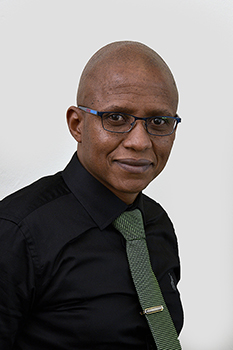Latest News Archive
Please select Category, Year, and then Month to display items
12 October 2020
|
Story Dr Cindé Greyling
|
Photo Supplied
 Exercise and nutrition can work wonders for your mental health – you don’t even have to ‘feel like’ or ‘enjoy’ moving around and eating well for it to work – it does its thing anyway.
Exercise and nutrition can work wonders for your mental health – you don’t even have to ‘feel like’ or ‘enjoy’ moving around and eating well for it to work – it does its thing anyway.
Nowadays, people talk about mental health like it is the common cold – which is good! But do you know what it really means? Being mentally healthy does not only refer to the absence of a mental illness but includes your emotional and social well-being. One would almost want to add physical well-being too, since a healthy body does indeed support a healthy mind. However, since so many people consider themselves ‘mental health experts’, some myths have been sold as truths.
Myth #1 – You are doomed.
Nope. Never. You are never doomed. There is always help. Mental-health therapies range from self-help, talk therapy, medication, to hospitalisation in some cases. Somewhere on this spectrum of treatments, there will be something that works for you. But you must be willing to get the help and do the work. For starters, exercise and nutrition can work wonders – you do not even have to ‘feel like’ or ‘enjoy’ moving around and eating well for it to work – it does its thing anyway.
Myth #2 – It won’t affect you.
It may. Research suggests that one in five people may suffer from a mental illness at some point in their lives. Being well now does not mean that it will stay that way. Biological and environmental factors both impact your mental health. Hopefully not, but at some point, you may experience an event that affects your mental health.
To remain integrated in a community is always beneficial
for anyone suffering from a mental or physical condition.
Myth #3 – Someone struggling with mental health must be left alone.
Hardly! To remain integrated in a community is always beneficial for anyone suffering from a mental or physical condition. You do not need to fix them, but to remain a friend. Continue to invite them, even if they decline. Do not judge, and do not try to understand. Just stay around.
Go and be kind to yourself, and to those around you.
New Dean of Student Affairs appointed
2016-08-23

Pura Mgolombane, newly-appointed
Dean of Student Affairs at the
University of the Free State.
Photo: Charl Devenish
“Students must always remember that people are human beings before any other identity they may embody.”
This is the message to the students of the UFS campuses from Pura Mgolombane, newly-appointed Dean of Student Affairs at the University of the Free State (UFS) in August 2016. He has replaced Cornelia Faasen, who acted as Dean from December 2014 to July 2016.
Being part of the Kovsie community
Previously, he was part of the Kovsie family as Assistant Dean of Student Life and Leadership (2011-2013). Before that, he was the Diversity, Ethics, and Social Justice Manager at the University of the Witwatersrand from August 2013 to July 2016. Mgolombane said he is most excited to “observe and experience an inclusive culture” at the university.
“I am looking forward to being part of a team that creates sufficient conditions for every member of the Kovsie community to feel that they belong here; from Qwaqwa campus, to South campus, to Bloemfontein campus.”
Making sure humanity comes first
His primary focus will be “to create Humanising Student Lived Experiences”. I want to create conditions where students feel that their humanity matters, because it is in such conditions that students are likely to excel academically,” he said.
These conditions will be created through the introduction of programmes and activities known as pedagogies, namely the humanising pedagogy and the pedagogy of discomfort. “All of these pedagogies and frameworks will be contained and further clarified in the Dean of Student Affairs Strategy which will be finalised no later than December 2016.”
Overcoming challenges faced by students
Regarding the challenges facing UFS students, Mgolombane said that “it is only when all out humanity is affirmed that we are likely to find lasting peace.
“Those who are in power or privileged positions have a responsibility to be in solidarity with the marginalised groups in pursuit of Social Justice.”